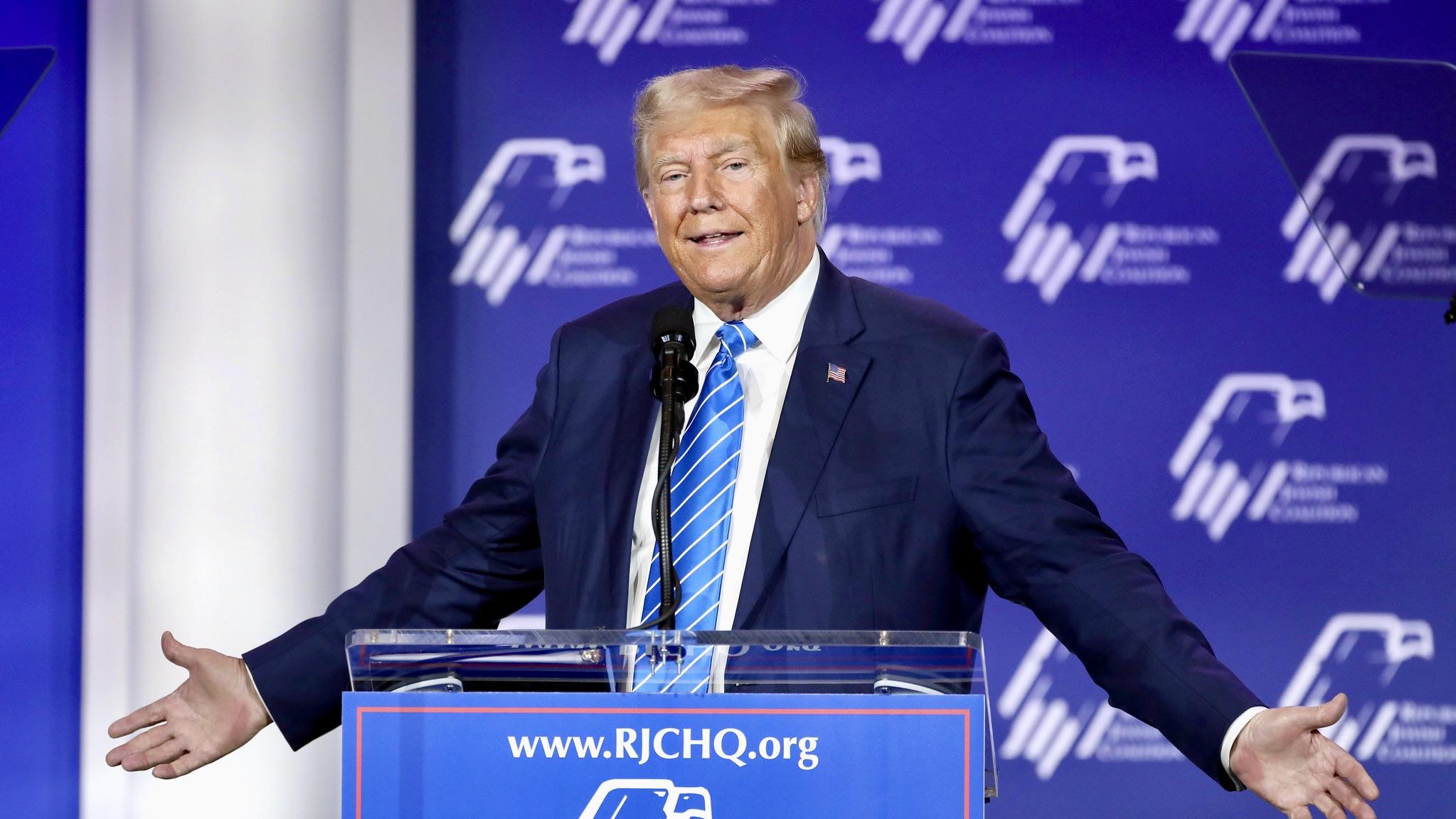In a bold policy shift, President-elect Donald Trump's administration plans to dismantle Biden-era regulations promoting electric vehicles (EVs) and stringent fuel-efficiency standards, sources reveal—threatening to stall the U.S. transition to cleaner energy.
Trump’s EV Rollback Plans Take Shape
Two individuals close to Trump's transition team have revealed that the new Trump administration intends to repeal federal restrictions that President Joe Biden had pushed for, with the goal of making cars more fuel efficient and encouraging a transition to electric vehicles.
Trump had pledged throughout his campaign to "end the EV mandate," and this would be his second attempt to implement this policy, the first being the repeal of vehicle efficiency regulations enacted by the Obama administration.
There may not be a formal "EV mandate" in place just yet, but rules proposed by the Biden administration would effectively force automakers to switch to EVs at a rate of 35% of total production by 2032 just to fulfill laws, and they would also promote a slow but steady elimination of manufacturing of fossil fuel-powered vehicles.
Biden’s EV Targets Under Threat
U.S. regulations governing fuel efficiency and exhaust emissions were approved earlier this year, but the new administration intends to roll them back.
Government agencies cited in the sources include the EPA and the National Highway Traffic Safety Administration. Those agencies are expected to be explicitly directed by Trump to examine the Biden regulations, according to one of the people.
There was a delay in a response from the Trump transition team.
Bloomberg was the first to report on the decision to roll down Biden's emissions standards for vehicles.
EV Tax Credit Elimination Looms
Another measure that would undoubtedly slow down the already stalled U.S. EV transition would be to eliminate the $7,500 consumer tax credit for electric-vehicle purchases, according to Reuters' exclusive report from last week.
Reversing comparable Obama-era restrictions took roughly three years during the first Trump administration. Trump requested a rule review in early 2017, and in 2018, the National Highway Traffic Safety Administration and the Environmental Protection Agency formally started revising the standards. The less rigorous regulations were not finalized by any agency until March 2020.
Automakers Push Back Against Biden Rules
Automakers have argued that Biden's rules are too burdensome, according to one source, so this is an effort to placate them, Investing.com reports.
Requests for comment were not responded to by General Motors, Ford, Stellantis, or Tesla. Neither did the Alliance for Automotive Innovation, a trade association that represents the majority of major automakers with the exception of Tesla.
The decision to focus on vehicle efficiency standards may hurt Tesla's bottom line. The company has made a killing in previous years by selling credits to other car companies that fail to meet federal vehicle standards or other international emissions laws.
Tesla Faces New Challenges
Since it solely deals in electric automobiles, Tesla is able to sell off the credits it earns from overcompliance with regulations. The value of the credits decreases as a result of the loosened standards.
Among Trump's most ardent supporters, Tesla CEO Elon Musk has emerged as a powerful advisor following the president's victory.
While Joe Biden was in office, Tesla advocated for more stringent rules on vehicle emissions than the EPA finally approved.



 Trump to Address Nation as U.S. Launches Strikes in Iran, Axios Reports
Trump to Address Nation as U.S. Launches Strikes in Iran, Axios Reports  Israel Declares State of Emergency as Iran Launches Missile Attacks
Israel Declares State of Emergency as Iran Launches Missile Attacks  OpenAI Secures $110 Billion Funding Round at $840 Billion Valuation Ahead of IPO
OpenAI Secures $110 Billion Funding Round at $840 Billion Valuation Ahead of IPO  Hyundai Motor Group to Invest $6.26 Billion in AI Data Center, Robotics and Renewable Energy Projects in South Korea
Hyundai Motor Group to Invest $6.26 Billion in AI Data Center, Robotics and Renewable Energy Projects in South Korea  FCC Approves Charter Communications’ $34.5 Billion Acquisition of Cox Communications
FCC Approves Charter Communications’ $34.5 Billion Acquisition of Cox Communications  U.S. Deploys Tomahawks, B-2 Bombers, F-35 Jets and AI Tools in Operation Epic Fury Against Iran
U.S. Deploys Tomahawks, B-2 Bombers, F-35 Jets and AI Tools in Operation Epic Fury Against Iran  Dominican Republic Unveils Massive Rare Earth Deposits to Boost High-Tech and Energy Sectors
Dominican Republic Unveils Massive Rare Earth Deposits to Boost High-Tech and Energy Sectors  Coupang Reports Q4 Loss After Data Breach, Revenue Misses Estimates
Coupang Reports Q4 Loss After Data Breach, Revenue Misses Estimates  Asian Stocks Rise on Nvidia Earnings Boost; Yen Weakens as BOJ Rate Outlook Clouds
Asian Stocks Rise on Nvidia Earnings Boost; Yen Weakens as BOJ Rate Outlook Clouds  APEX Tech Acquisition Inc. Raises $111.97 Million in NYSE IPO Under Ticker TRADU
APEX Tech Acquisition Inc. Raises $111.97 Million in NYSE IPO Under Ticker TRADU  Paramount Skydance to Acquire Warner Bros Discovery in $110 Billion Media Mega-Deal
Paramount Skydance to Acquire Warner Bros Discovery in $110 Billion Media Mega-Deal  Amazon’s $50B OpenAI Investment Tied to AGI Milestone and IPO Plans
Amazon’s $50B OpenAI Investment Tied to AGI Milestone and IPO Plans  Pentagon to Halt Ivy League Programs for U.S. Military Officers Starting 2026
Pentagon to Halt Ivy League Programs for U.S. Military Officers Starting 2026  Anthropic Resists Pentagon Pressure Over Military AI Restrictions
Anthropic Resists Pentagon Pressure Over Military AI Restrictions  Qantas Shares Plunge 10% as Iran Strikes Send Oil Prices Soaring and Disrupt Global Flights
Qantas Shares Plunge 10% as Iran Strikes Send Oil Prices Soaring and Disrupt Global Flights  Apple to Begin Mac Mini Production in Texas Amid $600 Billion U.S. Investment Plan
Apple to Begin Mac Mini Production in Texas Amid $600 Billion U.S. Investment Plan 































